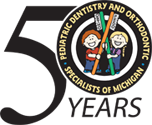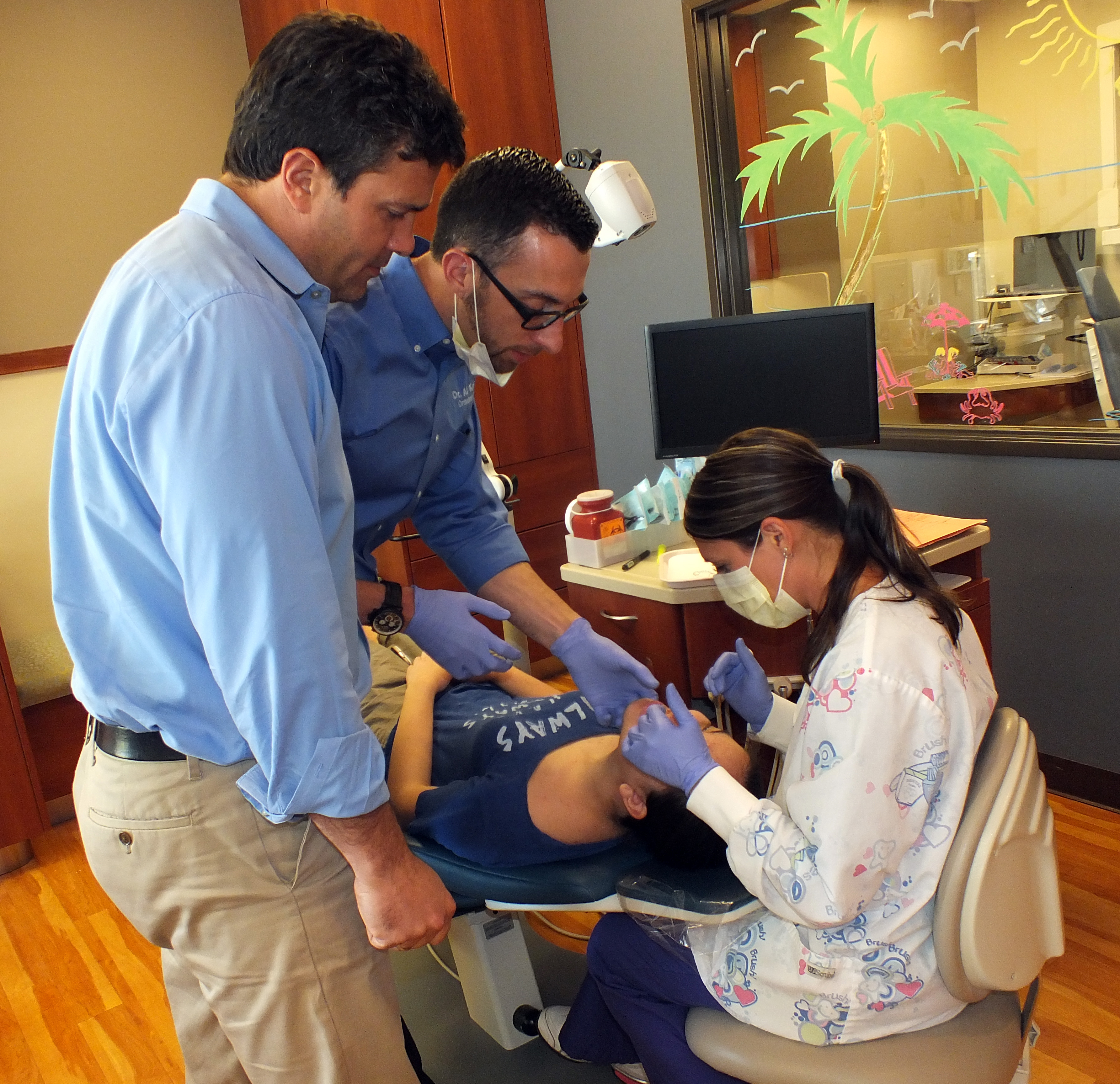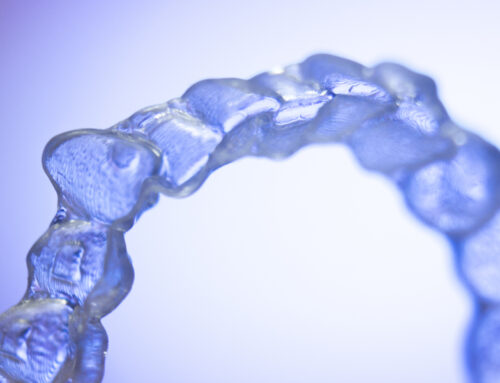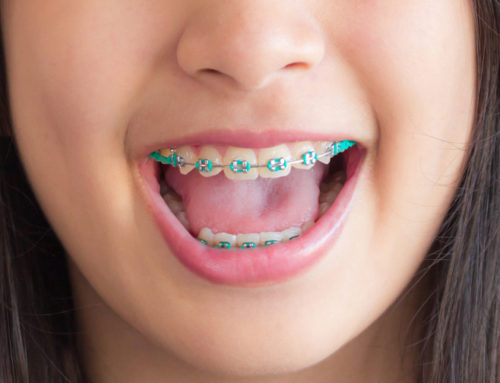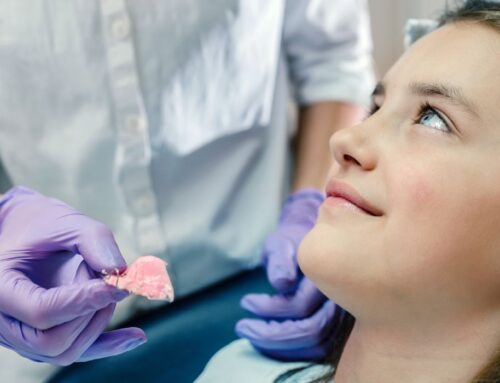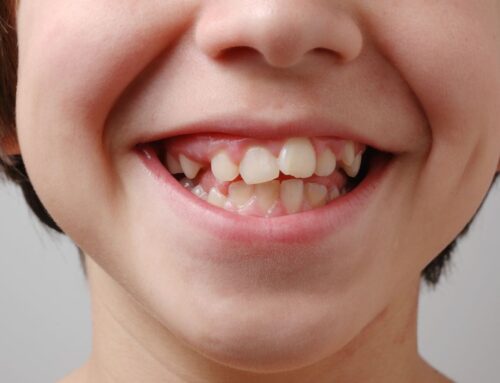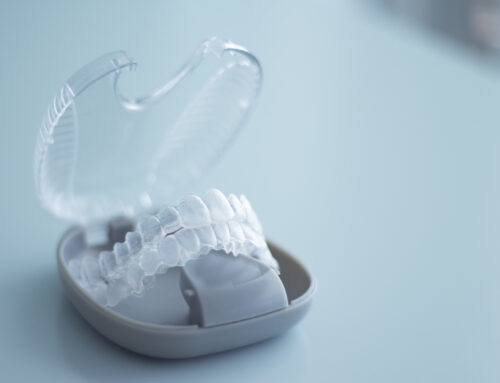Many of our patients ask us about Invisalign treatment when they come in for an orthodontic consultation as much of the general public is familiar with the idea of being a “candidate for Invisalign.” Frankly, not everyone is a candidate for Invisalign but with so much innovation in technology in the field of orthodontics, more and more types of orthodontic problems are becoming fixable with Invisalign each year. However, you may wonder, what is the best option? Which is more effective? Which is more affordable? All of these are good questions. The bottom line: both Invisalign and traditional braces are designed to straighten your teeth, correct the bite, and to give you that beautiful smile you want and our orthodontists are specially trained to help you make the best choice for you or your child’s treatment.
Braces are metal brackets that are glued to teeth and tied together by wires to apply the necessary pressure to move the teeth. They are not removable and are usually metal or enamel color (porcelain braces). They require an improved oral hygiene regimen and a bit of diet modification to avoid breakage. Follow up visits are important and you need to see your orthodontist approximately once every six weeks. Traditional braces are sometimes better or the only choice for more complex issues or if patient compliance with wearing aligners could be an issue. As the braces do protrude from the surface of the teeth tissue and cheek irritation can occur. Similar to Invisalign, however, is the fact that they exert a pressure on the teeth to get them to move so tooth discomfort can be expected with either treatment option. One of the biggest concerns with braces due to the food traps they can create is the risk of tooth discoloration, which can occur if the patient does not take good care of their mouth with braces installed.
Invisalign is designed to be invisible. Invisalign aligners are made of smooth clear plastic and are worn over youth teeth. There are other brands of clear aligners but Invisalign is the clear leader in innovation and aligner material technology so that is all we use in our practice. These innovations have led to an increased ability for orthodontists to treat more complex cases with Invisalign compared to several years ago. Aligners are worn 22-24 hours a day and should only be taken out for meals. They are easy to clean by removing and brushing and rinsing trays. Aligner trays need to be changed approximately every 2 weeks and orthodontist visits are usually every 6 to 10 weeks for monitoring and adjustment. There are no issues with food or difficulty eating and food restrictions generally do not exist because the aligners are removed for meals. However, because they must be removed and replaced before and after eating, compliance is a much bigger patient responsibility with Invisalign. We advise our patients to rinse or brush after eating before putting them back in to avoid discoloration.
Of course, whatever treatment option is chosen, it is wise to have it carried out by a specialist that has a lot of expertise in the art and science of tooth movement and can fully educate you about the positives and negatives of your options.
We hope this helped you if you get a general idea of some of the considerations relevant to someone making a decision whether to go with traditional braces or invisalign. We are here to help you make a wise and educated decision for you or your loved ones requiring orthodontic treatment.
About Pediatric Dentistry and Orthodontic Specialists of Michigan, the offices of Drs. Delaney, Plunkett, Ralstrom, Makowski, Thanasas, Ker, and Associates
Pediatric Dentistry and Orthodontic Specialists of Michigan have specialized in pediatric dentistry and orthodontics since 1968. Our family-friendly and newly renovated office gives patients and families a more comfortable and consistent experience with dentistry from the very beginning. Our pediatric dentists treat children from newborn to 18 years of age while our orthodontists provide care for both children and adults and are proud to be Preferred Providers of Invisalign and Invisalign Teen services. The ability to treat all patients with compassion and individuality, including those that may have special needs reaches beyond our facility, which has treatment rooms available for children who require additional privacy and customized care options. We pioneered valued hospital affiliations to allow dental services to be performed at DMC Children’s Hospital and St. John Macomb Hospital, when appropriate or necessary, and our specialists are also proud to be on staff at Henry Ford and Beaumont hospitals.
